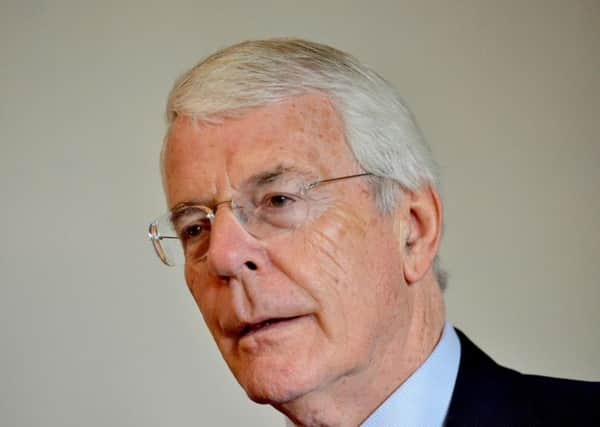YP Letters: Sir John Major's weakness over Europe led to Tories' ERM debacle


YOUR editorial (The Yorkshire Post, October 11) may be right in supporting Sir John Major’s advice in trying to moderate some of the glaring injustices in the Universal Credit legislation and the urgency in addressing them, but I cannot go along with some of the other rose-tinted views of the former Tory Prime Minister.
Advertisement
Hide AdAdvertisement
Hide AdIn the early 1990s, he was a sitting duck in giving way to EU consolidation and signing the Maastricht Treaty (with some weak opt-outs) and adopting the Exchange Rate Mechanism that was the ultimate ruination of his government. It was the time-bomb that blew the Tories out of office for well over a decade.
One of Sir John’s adages was “to be at the heart of Europe” and he moved from the stringency of Margaret Thatcher to a consensus form of politics. She understood the core nature of Brussels: a stultifying, inward-looking, despotic force that was developing into the bureaucratic nightmare that has since been revealed by the intricate web of rules and regulations that the government is trying vainly to extricate itself from.
Sir John may be fearful of another poll tax fiasco as the unreformed Universal Credit system takes effect, but he is a far more dangerous threat to Theresa May when he assumes his anti-Brexit incarnation.
From: Peter Booth, Hale, Altrincham.
ONCE again Chancellor Philip Hammond has displayed a complete ignorance as to how the economy works and a disregard for the men and women who work so hard to create wealth; without wealth we cannot fund world class healthcare, education, social care and the uniformed services.
Advertisement
Hide AdAdvertisement
Hide AdAn economy with low taxes and minimal regulation – especially when Brexit allows us to deal with an English-speaking world – will enable so many to prosper and our economy to grow.
Mr Hammond sees it differently as he wants to suppress enterprise, refuses to reduce taxes and aims to borrow more to fund welfare claimants, many of whom would not be on benefits if the economy was booming.
Mr Hammond believes in a control economy and in gaining personal support as he aspires for Number 10 when he should, if he were capable, be creating a dynamic hot house of innovation and enterprise in the UK.
Mr Hammond is betraying the Conservative Party and the British people, and should be dismissed now.